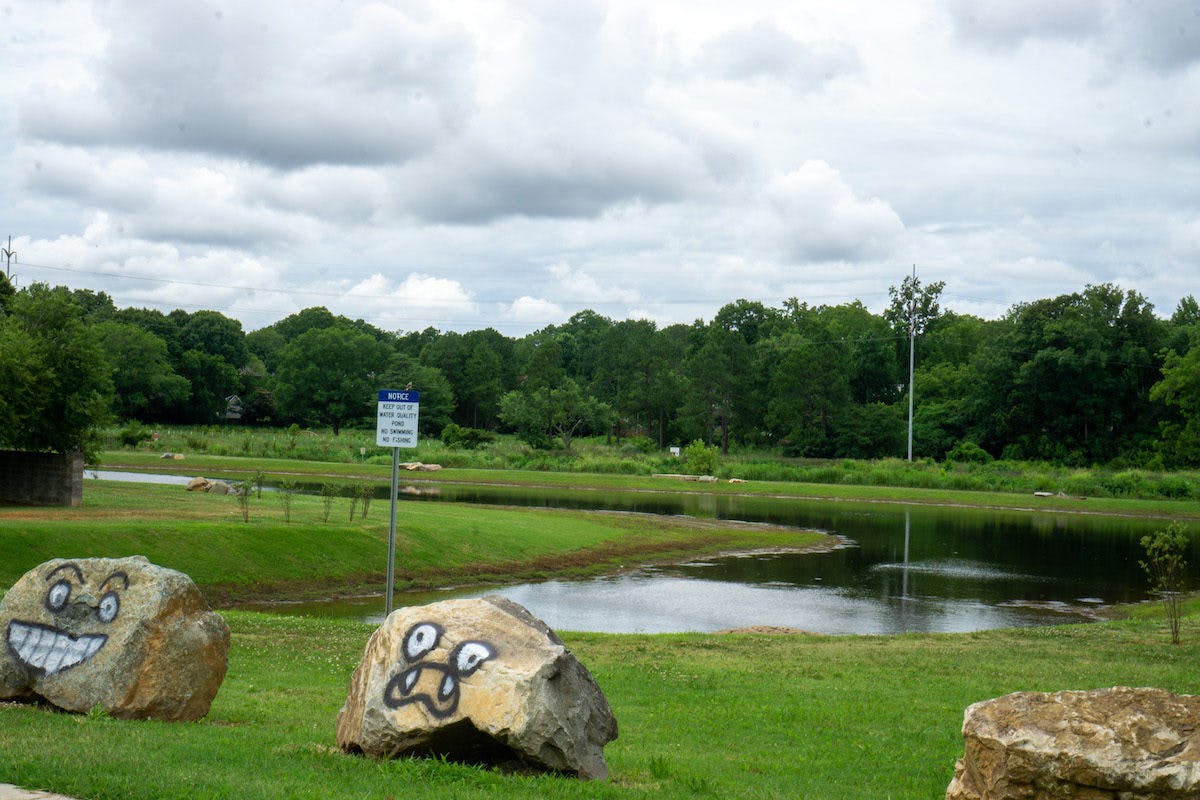Linda Shi, “Green Infrastructure Beyond Flood Risk Reduction”
Event Date: Sep 10, 2020; Event City: This lecture explores whether it is possible to achieve both social justice and environmental sustainability in efforts to mitigate urban flood risk. The expanding scale of urban flooding under climate change has renewed interest in large-scale restoration projects that make room for water in metro centers. However, ecologically functioning green infrastructure – unleashed rivers, sprawling wetlands – is inconsistent with the current governance landscape of fragmented local governments seeking to maximize local land values and minimize affordable housing. Moreover, even smaller-scale urban greening projects have resulted in gentrification, suggesting that larger-scale green infrastructure projects will produce still more racist, classist, and exclusionary development. The design imagination for new ecological landscapes has far outpaced a reimagination of the institutional and governance arrangements needed to enable nature-based solutions that advance social justice and ecological sustainability under climate change. This lecture provides an introduction to U.S. development practices implicated by these transitional landscapes, suggests future directions such as urban food production and regional governance, and invites conversation about ways to bridge traditional disciplinary silos in creating racially just, ecologically sustainable, and fiscally functioning cities. Speaker Linda Shi, MUP '08, is Assistant Professor in the Department of City and Regional Planning at Cornell University. Her research concerns how to plan for urban climate adaptation in ways that improve environmental sustainability and social justice. She assesses how aspects of urban land governance – including the fiscalization of land use, property rights regimes, and metropolitan regional institutions – shape climate vulnerability and adaptation responses. An urban environmental planner by training, Shi has worked for AECOM, the Institute for International Urban Development, and the Rocky Mountain Institute, and consulted for the World Bank and American Institute of Architects on projects and research in the U.S., Asia, Latin America, and Africa. Shi received a Ph.D. in urban and regional planning from MIT's Department of Urban Studies and Planning, a master's in urban planning from Harvard Graduate School of Design, and a bachelor's and master's in environmental management from Yale / Yale School of Forestry and Environmental Studies. Follow Linda Shi on Twitter and Instagram. How to JoinRegister to attend the lecture here. Once you have registered, you will be provided with a link to join the lecture via Zoom. This link will also be emailed to you.The event will also be live streamed to the GSD's YouTube page. Only viewers who are attending the lecture via Zoom will be able to submit questions for the Q+A. Live captioning will be provided during this event. After the event has ended, a transcript will be available upon request. Anyone requiring accessibility accommodations should contact the events office at (617) 496-2414 or events@gsd.harvard.edu. Read the full post on Bustler

This lecture explores whether it is possible to achieve both social justice and environmental sustainability in efforts to mitigate urban flood risk. The expanding scale of urban flooding under climate change has renewed interest in large-scale restoration projects that make room for water in metro centers. However, ecologically functioning green infrastructure – unleashed rivers, sprawling wetlands – is inconsistent with the current governance landscape of fragmented local governments seeking to maximize local land values and minimize affordable housing. Moreover, even smaller-scale urban greening projects have resulted in gentrification, suggesting that larger-scale green infrastructure projects will produce still more racist, classist, and exclusionary development. The design imagination for new ecological landscapes has far outpaced a reimagination of the institutional and governance arrangements needed to enable nature-based solutions that advance social justice and ecological sustainability under climate change. This lecture provides an introduction to U.S. development practices implicated by these transitional landscapes, suggests future directions such as urban food production and regional governance, and invites conversation about ways to bridge traditional disciplinary silos in creating racially just, ecologically sustainable, and fiscally functioning cities.
Speaker
Linda Shi, MUP '08, is Assistant Professor in the Department of City and Regional Planning at Cornell University. Her research concerns how to plan for urban climate adaptation in ways that improve environmental sustainability and social justice. She assesses how aspects of urban land governance – including the fiscalization of land use, property rights regimes, and metropolitan regional institutions – shape climate vulnerability and adaptation responses. An urban environmental planner by training, Shi has worked for AECOM, the Institute for International Urban Development, and the Rocky Mountain Institute, and consulted for the World Bank and American Institute of Architects on projects and research in the U.S., Asia, Latin America, and Africa. Shi received a Ph.D. in urban and regional planning from MIT's Department of Urban Studies and Planning, a master's in urban planning from Harvard Graduate School of Design, and a bachelor's and master's in environmental management from Yale / Yale School of Forestry and Environmental Studies.
Follow Linda Shi on Twitter and Instagram.
How to Join
Register to attend the lecture here. Once you have registered, you will be provided with a link to join the lecture via Zoom. This link will also be emailed to you.The event will also be live streamed to the GSD's YouTube page. Only viewers who are attending the lecture via Zoom will be able to submit questions for the Q+A. Live captioning will be provided during this event. After the event has ended, a transcript will be available upon request.
Anyone requiring accessibility accommodations should contact the events office at (617) 496-2414 or events@gsd.harvard.edu. Read the full post on Bustler
